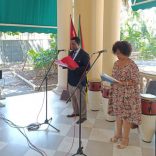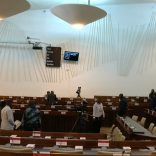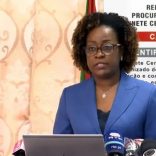Cuba celebrates 50th anniversary of Mozambique's independence
Systematic violation of “electoral legality” is a stain on Mozambican democracy – video

Eduardo Chiziane [Screen grab IMD]
The systematic violation of “electoral legality” is a stain on Mozambican democracy and generates distrust in relation to the value of universal suffrage, speakers pointed out at a seminar on “The Integrity of Electoral Processes” held in Maputo on Wednesday (September 23).
Addressing the theme “How to guarantee the integrity of the electoral processes in Mozambique”, Eduardo Chiziane, a university professor and expert on administrative law, described the fact that the opposition had not recognised the results of any of the six general elections held in the country so far as “disturbing”.
“When the opposition does not accept [the result of] any of the elections that have taken place in the country to date, we cannot ‘rest easy’, because [it means that] something very serious is going on,” Chiziane said.
“Strict observance of electoral legality,” especially by the electoral management bodies, was crucial for the ballots to have integrity and legitimacy, he said.
The “excessive judicialisation” of Mozambican elections, through recurring recourse to judicial bodies for the resolution of disputes, was another mark of the litigious character of electoral politics in Mozambique.
The profile, composition and mandates of the electoral management bodies must be analysed so that they did not become the centre of conflict, he said.
Former chairman of the Mozambican Bar Association Flávio Menete added that the gravity of electoral malfeasance in the country was generating a feeling that violations of the legislation were being normalised.

The murder of electoral observer Anastácio Matavele on the eve of the October 15 general elections last year and the physical violence between militants and party supporters also attested to an anti-democratic strand in Mozambican elections, Menete added.
António Chipanga, the first vice-president of the National Elections Commission and an expert on constitutional law, called for “a sincere commitment to the values of democracy” in Mozambican society, so that tolerance and respect for difference were more than just something to be grudgingly accepted.
“A culture of respect for the principles and values of democracy must be part of daily life for all members of Mozambican society,” Chipanga stressed.
Chipanga said that the enjoyment of rights and freedoms was not the prerogative of groups only, but a good for all citizens, and necessary for harmonious coexistence.
“It is the people who have to be the owners of democracy,” he said.













Leave a Reply
Be the First to Comment!
You must be logged in to post a comment.
You must be logged in to post a comment.